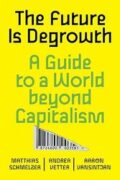
Rating: 8.2/10.
Adaptive Markets: Financial Evolution at the Speed of Thought by Andrew W. Lo
Book covering various aspects of the Efficient Market Hypothesis (EMH), modern hedge funds, and systemic risks leading to financial crashes. The Efficient Market Hypothesis is one of the most controversial theories in economics – it states that any public information (sometimes private information too), is immediately reflected in the share price, and therefore it should never be possible to make a profit by trading actively in the stock market. This is exemplified by the Challenger disaster: after it happened, within minutes of the incident, the company responsible for the O-Ring saw its stock price crash, even though it was weeks before this was confirmed by the official investigation. Prediction markets are also widely proven to be extremely accurate and more reliable than most types of formal surveys, as the market is a great way to aggregate information across many human participants.
This is a controversial topic in economics because academic economists abide by it so much that when authors propose theories that seem to violate the EMH, these theories are assumed to be wrong because they would imply that one can make money from the stock market. At the same time, it’s obvious that many bankers, like Warren Buffett, and George Soros have been consistently able to profit from inefficiencies in the market, and in fact, this is how hedge funds operate – by beating the market and exploiting any kind of systematic inefficiencies. The central question of this book is how we can reconcile these few points about the EMH.
A central observation is that markets are driven by people, who are irrational and subject to all kinds of cognitive biases, like loss aversion, not consistently applying the same discount rate to the present and future, taking more risks when losing money to try to recover losses, etc. The book then takes a long-winded detour into neuroscience and evolution, how species adapt to natural selection. This goes on for about 150 pages of interesting but not finance-related content about people with brain damage who behave in odd ways, their inability to process things or remember experiences, and an overview of the basics of evolutionary theory and how the most beneficial traits are selected for the environment and how evolutionary psychology is at the core of many cognitive biases.
After this long-winded detour, the author finally gets to his point of the book, which is the Adaptive Market Hypothesis – everybody operates under a set of heuristics, and they continue using these heuristics as long as they remain effective. When these heuristics cease to work and result in financial losses, traders either modify their behavior or are forced to exit the market, leaving only the most successful behaviors to persist. Over the long term, this system converges to the EMH, as traders can use advanced algorithms that still follow heuristics. When hedge funds compete by implementing similar strategies in the market, these strategies tend to work temporarily, but profits eventually diminish as too many entities attempt to capitalize on the same opportunities, thereby making the market more efficient. However, efficiency only holds true when the market remains stable. During periods of change due to shifting macroeconomic circumstances or financial regulations, the EMH can break down and there can be large inefficiencies.
The Adaptive Market Hypothesis explains irrational probability matching behavior given events where one event is known to occur at a 25/75 probability split, most participants will match and try to guess events at the same probability randomly, rather than pick the 75% option all the time. This is irrational at a personal level because it has a lower EV than consistently picking the winning option, but at a population level, it is optimal. Consider a situation where picking incorrectly means being wiped out – at a population level, if everybody in the group simultaneously pursues the greedy strategy and they experience unfavorable outcomes, they could all be eliminated at the same time. Therefore, the better strategy is the one that ensures long-term survival.
The book then shifts to hedge funds and issues involving risks and liquidity. There was a curious incident in the summer of 2007 (well before the 2008 crash), where many statarb portfolios trading on similar mean reversion strategies suddenly lost money quickly over the course of a few days before returning to normal on Friday, without any obvious macroeconomic trigger. In retrospect, what most likely happened was that one of the large mutual funds was forced to sell off their holdings, which caused a lack of liquidity; this triggered a chain effect where the hedge funds’ models did not expect such large swings for this duration and experienced losses, forcing them to pause their strategies to cool down for a while. This action exacerbated the problem until some investors realized something was off and profited from making the gains.
This story exemplifies a few points: first, that markets can have inefficiencies in the short term even though they are generally efficient in the long term, and second, how the complexity of the financial system makes many things difficult to understand, especially with secretive hedge funds and magnified by high-frequency computers in trading. These make regulation more difficult, and amplifies systemic risks that can bring down the entire financial system.
Any theory should also address the explanation of what occurred during the 2008 financial crash. There are several explanations commonly circulated, but the author denies their credibility, such as structural incentives for fund managers to take more risks or regulators being asleep at the wheel and allowing funds to trade with higher leverage. These explanations don’t hold up to closer scrutiny, and it’s more likely that institutional investors’ greed to continue making money tends to triumph over their fear of a systemic market crash.
Based on psychological experiments, people in finance tend to have a reputation for being greedy, with the worldview that it’s fair game to try to make more money in the market. They believe one shouldn’t try to ascribe moral responsibility to market actions like shorting a stock or currency. Externally, the finance industry has a reputation for being greedy and taking more than their fair share of the economy, overall benefiting a wealthy minority at the expense of the masses.
Part of the responsibility falls on regulators to prevent systemic meltdowns from proliferating to the rest of the economy. However, it’s less clear how the regulation can be improved — modern banking is complex, leading to unpredictable changes when regulations are modified. There’s also highly secretive, unlike NTSB-type aircraft crash investigations, so many crashes in the past are still not completely understood. The situation appears unlikely to have an easy fix in the short term.
The book ends on a note where it laments how the problems seem to be cultural and systemic, unlikely to have a quick fix. The author wishes that more of the finance industry would direct investment toward things that are more useful, such as discovering cures for cancer, rather than eg, speculating on real estate with their capital.



